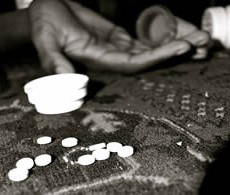Drug Overdose
Drug overdosing can either be an accidental or intentional reaction to taking more of a drug than your body can handle. Almost every drug has the potential to be misused and can be dangerous at high dosages. Also, taking drugs in combination with other drugs or alcohol can cause even relatively safe drugs to be very dangerous, even life-threatening. Children and teens are particularly at higher risks for accidental overdoses and account for over 1 million poisonings each year.
Young children may overdose by swallowing drugs by accident that they may find around the house. Overdosing generally happen when someone accidentally leaves a medication within a child’s reach. Teens and adolescents are at a higher risk for drug overdose because many teens may use overdosing on drugs as a way to harm themselves, or may combine drugs with alcohol to get an increased effect.
Symptoms of a Drug Overdose
Drug overdosing can have many different symptoms, depending on the drug you have taken, and what it may have been mixed with. A diagnosis of a drug overdose may be based on specific symptoms that develop, although extensive damage to the body can happen before any significant symptoms show themselves. Common symptoms may include:
- Nausea and vomiting
- Failure to respond after someone calls their name or shakes them
- May have lips or fingernails turn blue
- May make gurgling or loud snoring sounds
- Irregular Breathing
- Profuse sweating
- Neurological impairment
- Pupil dilation
- Drowsiness or unconsciousness
How much do you have to Consume to Overdose?
 Every drug, including alcohol, has a certain limit that can be taken or else it can be dangerous to the human body. This varies on the type of drug, the tolerance of the individual, that person’s weight and body type, and if the drug was mixed with alcohol or other substances. Almost any drug can cause a very serious, even fatal drug overdose, if taken in a high enough dosage. The only drug that you cannot lethally overdose on is marijuana.
Every drug, including alcohol, has a certain limit that can be taken or else it can be dangerous to the human body. This varies on the type of drug, the tolerance of the individual, that person’s weight and body type, and if the drug was mixed with alcohol or other substances. Almost any drug can cause a very serious, even fatal drug overdose, if taken in a high enough dosage. The only drug that you cannot lethally overdose on is marijuana.
To avoid medical accidental overdosing, always read the label on the bottle and be sure to take the correct dosage. Never mix a prescription drug with alcohol and be careful to read of any dangerous drug interactions before you take more than one drug at a time. Never take a prescription medication prescribed for someone else, and never give or take a medication in the dark.
Make no mistake, teen drug overdosing kill thousands of teens every year. Never mix drugs with alcohol and never snort or shoot drugs or prescriptions pills. This rapid action can make you much more likely to overdose, and much more susceptible to permanent damage done to your brain and body.






